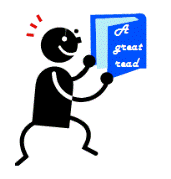I hope you find my writing and business tips and observations useful. My business and blog are dedicated to helping businesses communicate clearly and reach their potential.
Read, subscribe to my newsletter, enjoy!Tash
Why alienate your audience?
I have just finished reading a book my daughter has read a few times. I was actually keen for her to read books by this author as she is Australian, writes about the meeting of cultures and seems to give a positive outlook to teenagers.
Now, I’m not so keen.
I actually found parts of this book (and admittedly it was her first) unsettling – and I’m unlikely to read another. by this author.
Writing about Melbourne
The book is clearly set in Melbourne – the characters live in Camberwell, eat Vegemite, visit Lygon St for pizza and gelati, Acland St for cakes and belong to the Debating Association of Victoria (DAV). All those details are named and a theme of the book is a girl finding her identity as a ‘hyphenated Australian’.
So why does she ‘catch a streetcar’ to a ‘mall’ with her ‘mom’ wearing ‘flipflops’ or discuss clothing choices for a 58 degree day or ‘keep to the right’ when skating at St Kilda beach?
I’ve never caught a streetcar or worn flip flops in my life, but have been in many Melbourne trams and often worn thongs. Australia is metric so her 58 degrees farenheit would be known as 14 degrees (ah, now her comments about the girl being under-dressed make sense!) and if you stick to the right on our roads and paths you’re likely to get arrested if not killed!
Consider your audience
I often read books that were written for other countries, including the USA. I mentally ‘translate’ them into my experiences. So someone is facing a difficult left hand turn in the book and I picture it as a right hand turn to understand the context. I read ‘mom’ as ‘mum’, ‘color’ as ‘colour’ and struggle over imperial references.
That’s okay when I’m reading an American book.
I resent it in an Australian book.
If you are sharing an Australian experience with readers, make it authentically Australian by using Australian terminology and spelling. To do otherwise alienates your Australian audience.
Maybe her purpose was to write for the American audience because it is larger. Then why make it so clearly about Australia? Why insult Americans to say they can’t read a book and ‘translate’ terms into their context?
In a book trying to show how cultures are different but can co-exist, I found it uncomfortable that she didn’t stay with the Australian culture. It felt hypocritical. And that she was demeaning Australian culture.
Back to business…
You may not be writing books about cultural clashes, or even in a business that has much cultural diversity to deal with, but the point is the same.
It’s important to know your voice and stick to it.
To know your audience and understand it – not just what they can understand but what could be insulting or offensive.
To really think about what you are communicating between the lines.
To realise that the USA is not the world and that it’s ok to do things in a locally appropriate way instead of copying the American way by default.



